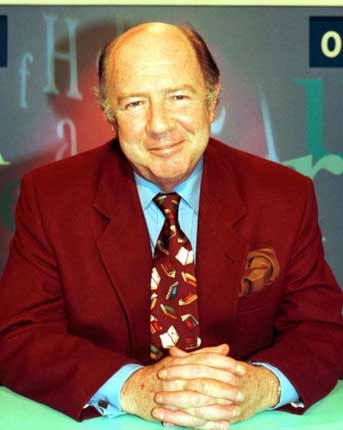'His readers loved him, and they needed to tell him that'
For the late, great Alan Coren, laughter was the key to moving his audience, say his children Victoria and Giles

Your support helps us to tell the story
From reproductive rights to climate change to Big Tech, The Independent is on the ground when the story is developing. Whether it's investigating the financials of Elon Musk's pro-Trump PAC or producing our latest documentary, 'The A Word', which shines a light on the American women fighting for reproductive rights, we know how important it is to parse out the facts from the messaging.
At such a critical moment in US history, we need reporters on the ground. Your donation allows us to keep sending journalists to speak to both sides of the story.
The Independent is trusted by Americans across the entire political spectrum. And unlike many other quality news outlets, we choose not to lock Americans out of our reporting and analysis with paywalls. We believe quality journalism should be available to everyone, paid for by those who can afford it.
Your support makes all the difference.Victoria Coren: I wish he had written a novel. Actually, what I really wish is that he had written an autobiography. He had that great idea for writing one based on all the cars he ever drove... it would have been so good.
Giles Coren: The 1990s would have been the time for that sort of writing. He left Punch in ’88 and all of that Fleet Street romance – cricket in the corridor, drunken lunches, contributors carving their names in the Punch table, Sheridan Morley, Miles Kington, Basil Boothroyd, Bill Tidy, Bywater, royal visitors – it all came to an end. It had got too businesslike, he was summoned to too many meetings with people who wore grey suits and talked about revenue streams. He edited The Listener for a year and then he came home to write.
Victoria: He wrote the Times column twice a week, and talked a lot about novels and the autobiography without actually doing them.
Giles: I tried to persuade him. If he was that good at writing sentences, I thought he would write a very good novel. But he didn’t think the two things necessarily went together – he always said that his old pal Jeffrey Archer could write novels but he couldn’t write sentences.
Victoria: I think that was just an excuse. He was never going to get much work done once he came home. Part of the problem was that he had such a happy marriage. He famously never went out for drinks after The News Quiz because he was always in such a hurry to get back home to her and eat veal schnitzel together in front of the TV. Once he was working from home, he got all involved with the domestic routine. He always had an ear cocked for Mummy’s key in the door. He was much happier helping her unload Waitrose bags than sitting at the computer trying to write.
Giles: And the writing was all about Cricklewood. That strange Cricklewood of his own invention, which didn’t really exist. Except for the domestic frustrations – gas men turning up late, junk mail, plants dying when he went on holiday, tiles falling off the roof, “narmean” – that was all a comic version of his very genuine obsessions.
Victoria: And he did it brilliantly. The American influence, the youthful inspiration he took from civil rights and political stories, disappeared from the writing, and it became a very British sort of comedy – small things, silly things. Herons, hearing aids, hosepipe bans, talking parrots, QPR fans arguing at cheese counters. He was a master of all that.
Giles: It’s funny to use a word like “master” in the context of a writer whose work was so ostensibly superficial, so entirely motivated by humour. It’s usually the boring ones who get called that. As a writer you want to move people, or at best “affect” them in some way, and for him the easiest way, the only way, was to make them laugh. He got hundreds and hundreds of letters from Times readers, far more, I’m sure, than any of the “serious” writers. They loved him, and they needed to tell him that.
Victoria: I think they loved him because his comedy was so warm, it reflected a charming and optimistic and kindly vision of the world. It’s easy to get a laugh from being nasty or from being philistine, but he didn’t do that. He never got a cheap laugh at someone’s expense – if it was at someone’s expense, it was a fair target and cleverly done – but he was always funny, and that’s really hard for 20 minutes, never mind a lifetime.
Taken from ‘Chocolate and Cuckoo Clocks: The Essential Alan Coren’, edited by Giles Coren and Victoria Coren. Published by Canongate on 16 October, £20 hardback.
Join our commenting forum
Join thought-provoking conversations, follow other Independent readers and see their replies
Comments